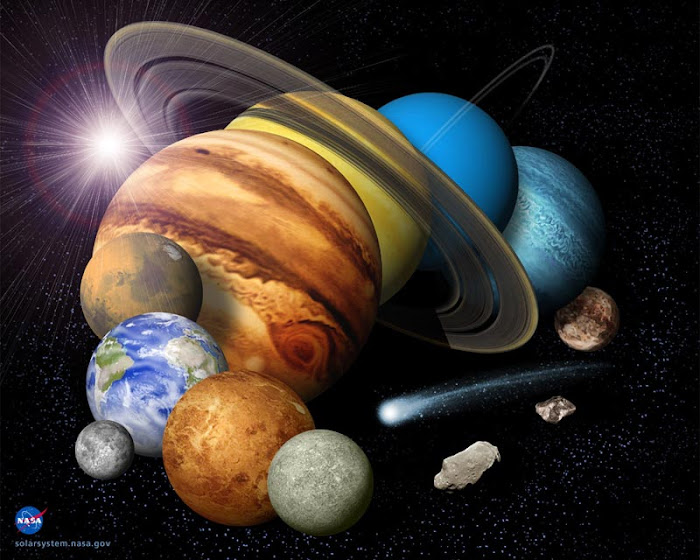 What is dark energy? More is unknown than is known — we know how much there is, and we know some of its properties; other than that, dark energy is a mystery — but an important one. Roughly 70% of the Universe is made of dark energy. Dark matter makes up about 25%. The rest - everything on Earth, everything ever observed with all of our instruments, all normal matter adds up to less than 5% of the Universe. Then again, maybe it shouldn't be called "normal" matter since it is a small fraction of the Universe!
What is dark energy? More is unknown than is known — we know how much there is, and we know some of its properties; other than that, dark energy is a mystery — but an important one. Roughly 70% of the Universe is made of dark energy. Dark matter makes up about 25%. The rest - everything on Earth, everything ever observed with all of our instruments, all normal matter adds up to less than 5% of the Universe. Then again, maybe it shouldn't be called "normal" matter since it is a small fraction of the Universe!
Thursday, July 10, 2008
Dark Energy, Dark Matter
Ocean and Earth System
 Just by looking at images of Earth from space, it's clear that the ocean is a significant piece of the Earth's story. In fact, the ocean represents over 70% of the Earth's surface and contains 97% of all water on Earth. The ocean stores heat like a "fly wheel" for climate. Its huge capacity as a heat and water reservoir moderates the climate of Earth. Within this Earth system, both the physical and biological processes of the ocean play a key role in the water cycle, the carbon cycle, and climate variability.
Just by looking at images of Earth from space, it's clear that the ocean is a significant piece of the Earth's story. In fact, the ocean represents over 70% of the Earth's surface and contains 97% of all water on Earth. The ocean stores heat like a "fly wheel" for climate. Its huge capacity as a heat and water reservoir moderates the climate of Earth. Within this Earth system, both the physical and biological processes of the ocean play a key role in the water cycle, the carbon cycle, and climate variability.
 Even if you live nowhere near the ocean, you will still experience the ocean's influence in our Earth system. Most of the rain that falls on landcomes from the tropical ocean. The ocean is the primary driver of weather and climate and can give us clues to global phenomenon such as El Niño. The phytoplankton (microscopic plants) that live in the ocean are responsible for almost half the oxygen you inhale and play a vital role in the carbon cycle. Far inland from the ocean, fields of crops enjoy rainwater that traveled through the water cycle and spent a few days or perhaps thousands of years cycling through the ocean.
Even if you live nowhere near the ocean, you will still experience the ocean's influence in our Earth system. Most of the rain that falls on landcomes from the tropical ocean. The ocean is the primary driver of weather and climate and can give us clues to global phenomenon such as El Niño. The phytoplankton (microscopic plants) that live in the ocean are responsible for almost half the oxygen you inhale and play a vital role in the carbon cycle. Far inland from the ocean, fields of crops enjoy rainwater that traveled through the water cycle and spent a few days or perhaps thousands of years cycling through the ocean. Parallax
 Try this: your "point of view" makes a difference!Hold up your thumb at arm's length. With one eye closed, line up your thumb with an object in the distance. Now switch eyes so that only the other eye is open. Does your thumb suddenly change position? Move your thumb closer to your nose and try again. Can you see your thumb jump even more?
Try this: your "point of view" makes a difference!Hold up your thumb at arm's length. With one eye closed, line up your thumb with an object in the distance. Now switch eyes so that only the other eye is open. Does your thumb suddenly change position? Move your thumb closer to your nose and try again. Can you see your thumb jump even more?
Astronomers call this effect "parallax." The closer an object, the more it appears to shift against the distant background, when viewed from two different spots.











